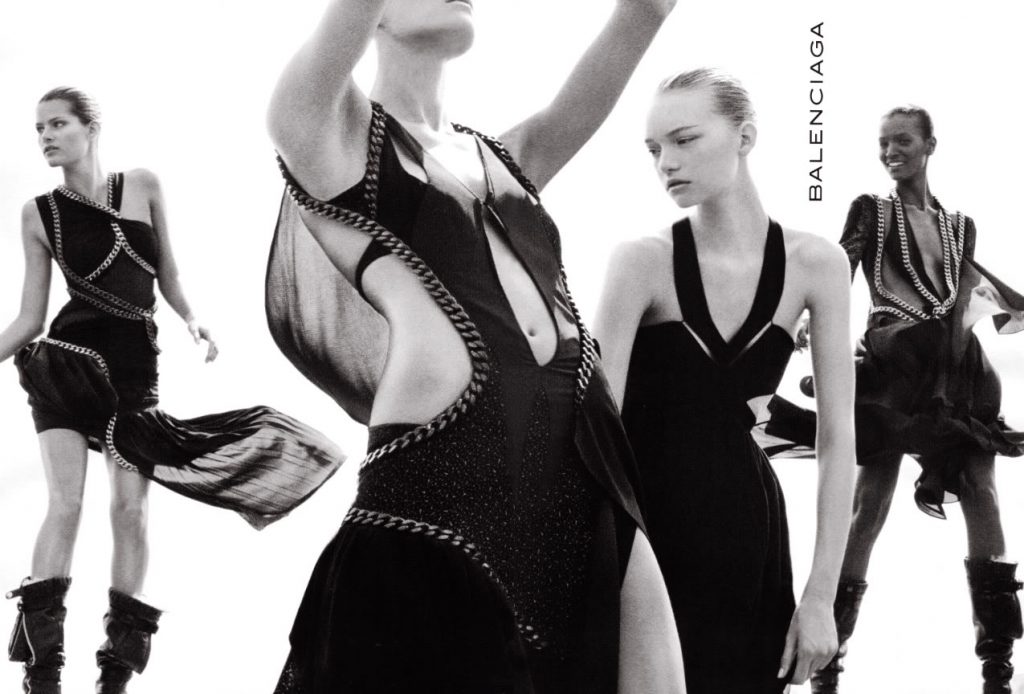The Financial Times published a “rare interview” with Nicolas Ghesquiere this week. While the Louis Vuitton womenswear creative director shed light on the challenges facing the industry, the digitalization of fashion, and his time at Balenciaga, maybe the most interesting element of the interview was not what he said, but the fact that he said anything at all. Ghesquiere has been relatively quiet in terms of interviews since he left Balenciaga in 2012 and was subsequently slapped with a nearly $10 million lawsuit by the French fashion brand’s parent company, Kering, in 2013.
Kering filed suit against Ghesquière in connection with comments he made in a System magazine interview in the wake of his departure from Balenciaga, where he spent 15 years in the top creative job, namely, “I was being sucked dry, like they wanted to steal my identity while trying to homogenize things” and Balenciaga has plans to “open up a load of stores in really mediocre spaces.” According to Kering’s complaint, such comments violated the parties’ “separation agreement” that Ghesquiere signed in October 2012, which stipulated that he would “refrain from declarations that could hurt the image of Balenciaga” or its parent company, Kering.
François-Henri Pinault-led Kering – which also owns Gucci, Balenciaga, and Bottega Veneta, among other brands – further asserted that it “did not want its designer to justify his departure by criticizing the house that employed.” The French conglomerate argued that “the parties, knowing the hypersensitivity of the fashion industry to changes in creative direction, were forbidden from commenting on the break in order to avoid any detrimental effect on their economic interests or their image.”
As of August 2014, the parties agreed to attempt to settle the case by way of mediation. In seeking to resolve the matter out of court (and the public eye), Hugo Lévy, lawyer at Thierry Lévy & Associés, who represented Kering, stated at the time that the parties attempt to come to an agreement does not reflect any changes in the fashion group’s claims brought against Ghesquiere. He further noted that if the two parties are unable to reach an accord via mediation, Balenciaga is set to continue pursuing the case in court.
Given that the matter has not found itself back in court, it appears that Ghesquiere and Kering reached an agreement to resolve the lawsuit, although both parties’ legal teams refused to provide any substantive comments on the ultimate resolution.
With all of this in mind, it is somewhat interesting that Ghesquiere spoke to his time at Balenciaga with the Financial Times’ Jo Ellison for the article. In particular, he said (and certainly chose his words wisely): “When I started at Balenciaga, when I was 25, I was terrified by those responsibilities. But I tried to be comfortable with the idea that they want your point of view, they want your aesthetic, so keep strong and you will do a good job.”
Another telling excerpt follows Ellison’s question, “It’s now 20 years since you were made creative director of Balenciaga. How do look back on that 25-year-old now?” To this, Ghesquiere said: “I did make mistakes, of course, mistakes I grew from, mistakes I laugh about today. But it was a situation that was exceptional, it was a rebirth of a house that was hidden, mysterious, forgotten, extraordinary. I was there, and they gave me the job because no one else was there. And here we are today, more than 20 years later, and I’m at Louis Vuitton and I’m still very happy. So I look back at myself with no nostalgia, but with happiness.”











